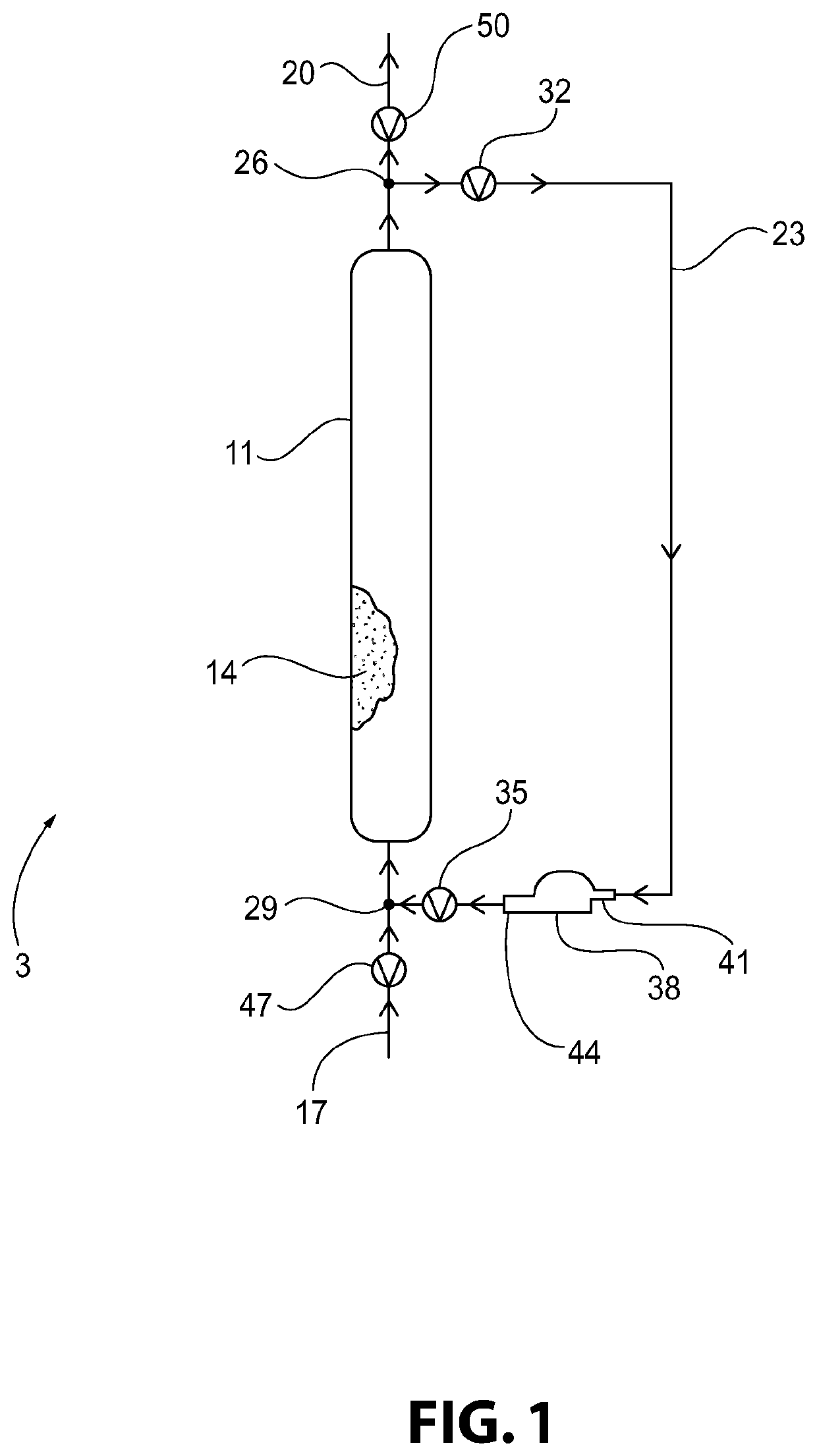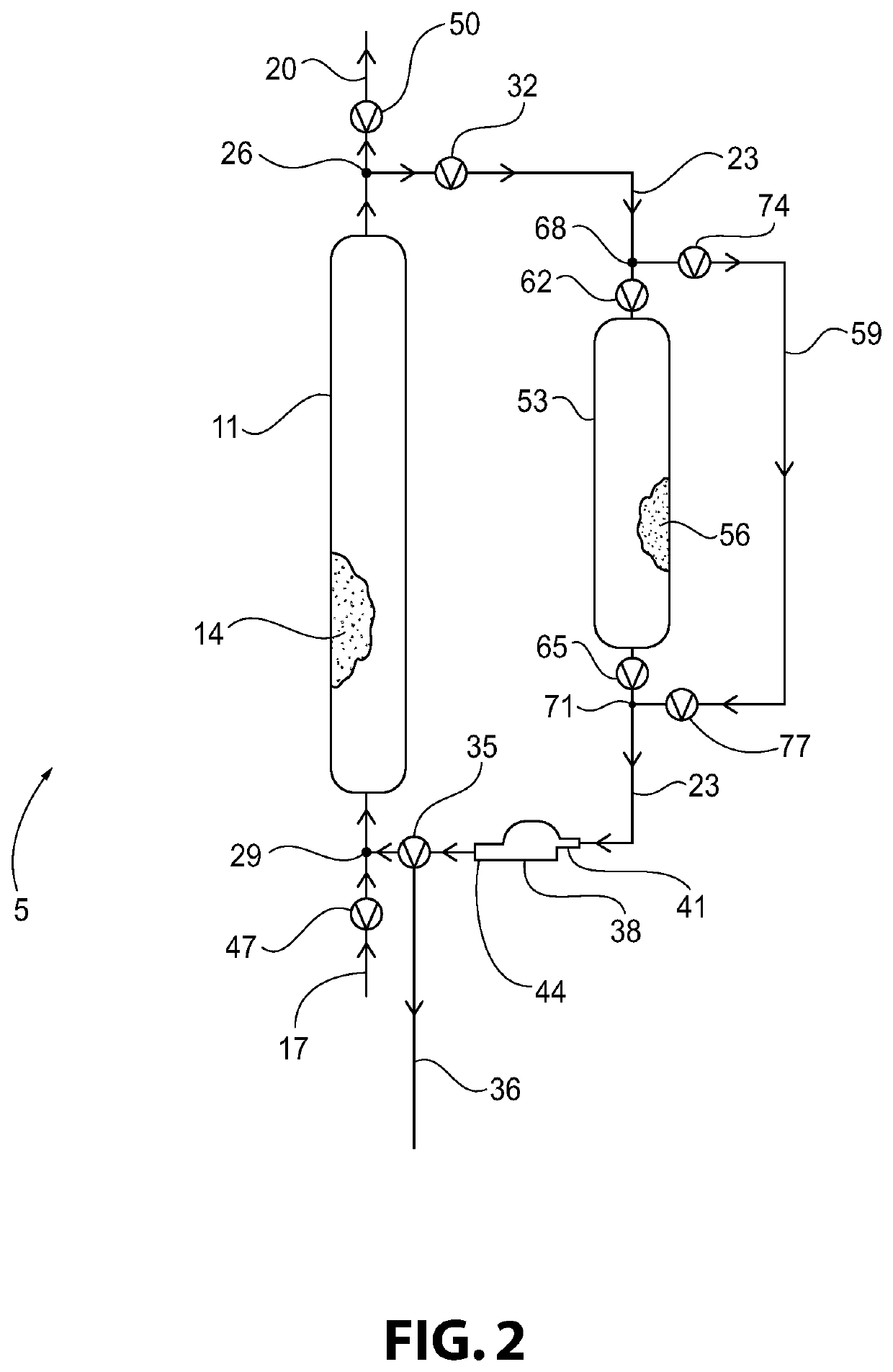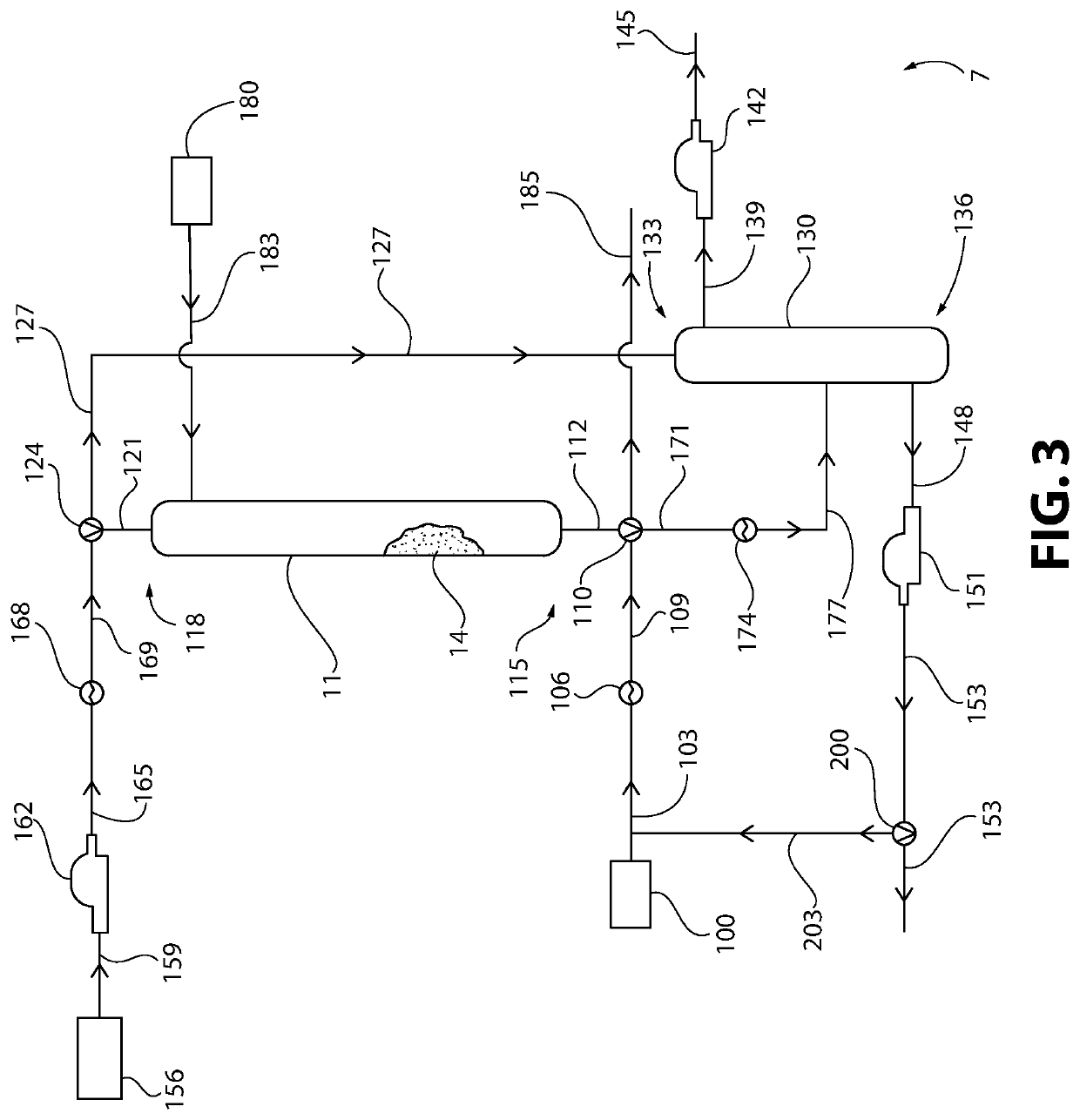Method of Converting a Brominated Hydrocarbon to a Chlorinated Hydrocarbon
a brominated hydrocarbon and chlorinated hydrocarbon technology, applied in the field of converting brominated hydrocarbons, can solve the problems of difficult to separate brominated hydrocarbon co-products from target chlorinated hydrocarbon products, contaminated chlorine sources, undesirable co-product hydrocarbons,
- Summary
- Abstract
- Description
- Claims
- Application Information
AI Technical Summary
Benefits of technology
Problems solved by technology
Method used
Image
Examples
example 1
[0170]The conversion of 1-bromo-n-butane to 1-chloro-n-butane in accordance with the present invention was conducted as follows.
[0171]A 250 mL (milliliters) three-necked round-bottom flask equipped with a magnetic stir bar, internal thermocouple coupled to an external and underlying heating mantle, condenser, and nitrogen sweep was used in this example. To the flask was added 8.73 grams of dried chlorinated anion exchange resin, having: a water content of 3 percent by weight, based on total weight of the chlorinated anion exchange resin; and a total chloride content of 32.5 mmoles (milli-moles or millimoles). The chlorinated anion exchange resin was Purolite PPA 500PLUS chlorinated anion exchange resin, which, as received, initially had a water content of 54 percent by weight. The initial or wet Purolite PPA 500PLUS chlorinated anion exchange resin was washed with methanol and then subjected to reduced pressure until a constant weight was measured, at which point it was determined t...
example 2
[0174]The conversion of 1-bromo-2-chloroethane to 1,2-dichloroethane in accordance with the present invention was conducted as follows.
[0175]A 250 mL three-necked round-bottomed flask equipped with a magnetic stir bar, internal thermocouple coupled to an external and underlying heating mantle, condenser, and nitrogen sweep was used in this example. To the flask was added 14.36 grams of dried chlorinated anion exchange resin, having: a water content of 3 percent by weight, based on the total weight of the chlorinated anion exchange resin and the water; and a total chloride content of 54.5 mmoles. The chlorinated anion exchange resin was Purolite PPA500PLUS chlorinated anion exchange resin, which, as received, initially had a water content of 54 percent by weight. The initial or wet Purolite PPA 500PLUS chlorinated anion exchange resin was washed with methanol and then subjected to reduced pressure until a constant weight was measured, at which point it was determined to have a water ...
example 3
[0183]The conversion of bromochloromethane to dichloromethane in accordance with the present invention was conducted as follows.
[0184]A 250 mL three-necked round-bottomed flask equipped with a magnetic stir bar, internal thermocouple coupled to an external and underlying heating mantle, condenser, and nitrogen sweep was used in this example. To the flask was added 19.71 grams of dried chlorinated anion exchange resin, having: a water content of 3 percent by weight, based on the total weight of the chlorinated anion exchange resin and the water; and a total chloride content of 74.8 mmoles. The chlorinated anion exchange resin was Purolite PPA500PLUS chlorinated anion exchange resin, which, as received, initially had a water content of 54 percent by weight. The initial or wet Purolite PPA 500PLUS chlorinated anion exchange resin was washed with methanol and then subjected to a stream of nitrogen gas until a constant weight was measured, at which point it was determined to have a water...
PUM
 Login to View More
Login to View More Abstract
Description
Claims
Application Information
 Login to View More
Login to View More - R&D
- Intellectual Property
- Life Sciences
- Materials
- Tech Scout
- Unparalleled Data Quality
- Higher Quality Content
- 60% Fewer Hallucinations
Browse by: Latest US Patents, China's latest patents, Technical Efficacy Thesaurus, Application Domain, Technology Topic, Popular Technical Reports.
© 2025 PatSnap. All rights reserved.Legal|Privacy policy|Modern Slavery Act Transparency Statement|Sitemap|About US| Contact US: help@patsnap.com



